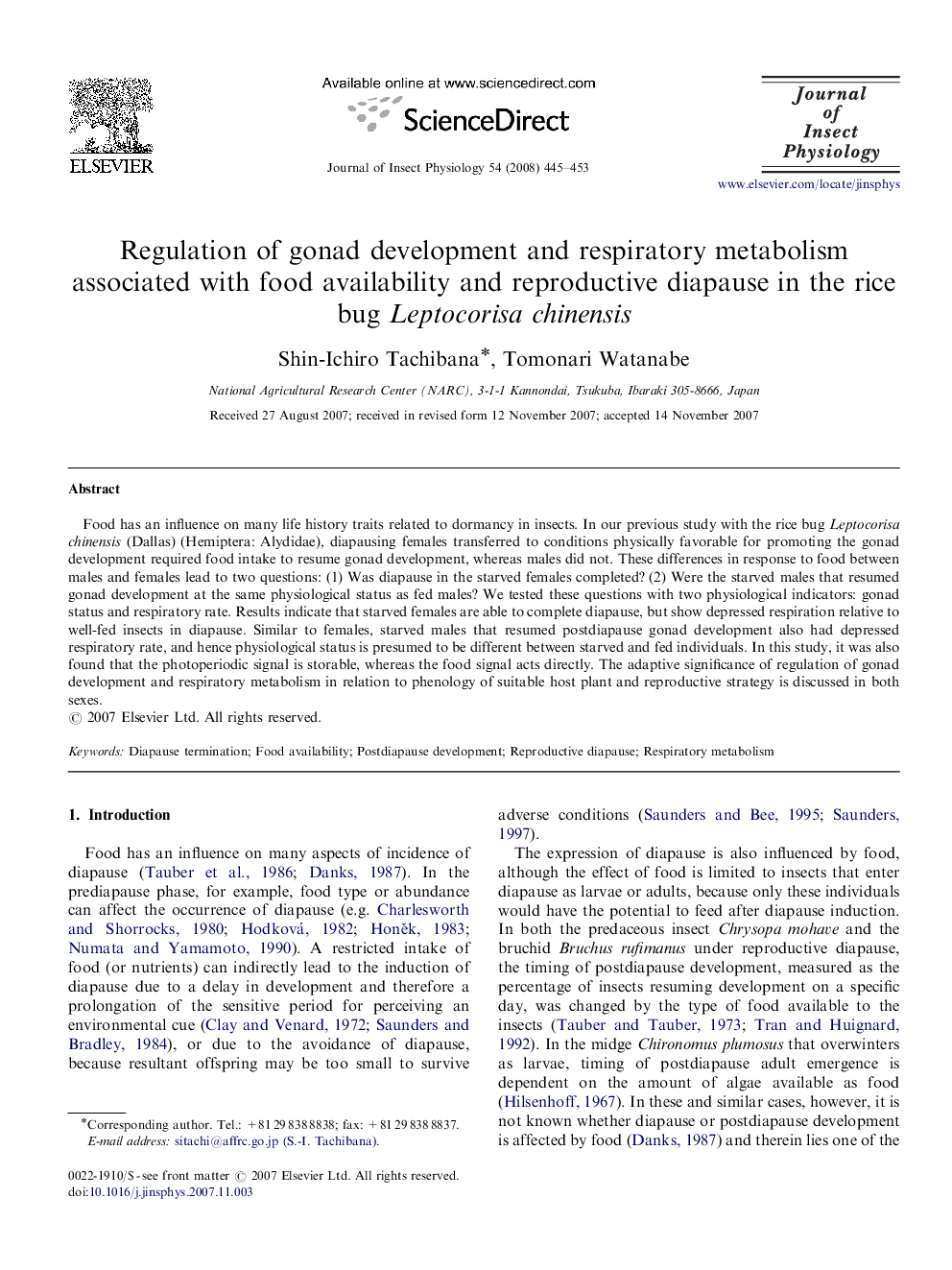| Article ID | Journal | Published Year | Pages | File Type |
|---|---|---|---|---|
| 2841488 | Journal of Insect Physiology | 2008 | 9 Pages |
Food has an influence on many life history traits related to dormancy in insects. In our previous study with the rice bug Leptocorisa chinensis (Dallas) (Hemiptera: Alydidae), diapausing females transferred to conditions physically favorable for promoting the gonad development required food intake to resume gonad development, whereas males did not. These differences in response to food between males and females lead to two questions: (1) Was diapause in the starved females completed? (2) Were the starved males that resumed gonad development at the same physiological status as fed males? We tested these questions with two physiological indicators: gonad status and respiratory rate. Results indicate that starved females are able to complete diapause, but show depressed respiration relative to well-fed insects in diapause. Similar to females, starved males that resumed postdiapause gonad development also had depressed respiratory rate, and hence physiological status is presumed to be different between starved and fed individuals. In this study, it was also found that the photoperiodic signal is storable, whereas the food signal acts directly. The adaptive significance of regulation of gonad development and respiratory metabolism in relation to phenology of suitable host plant and reproductive strategy is discussed in both sexes.
